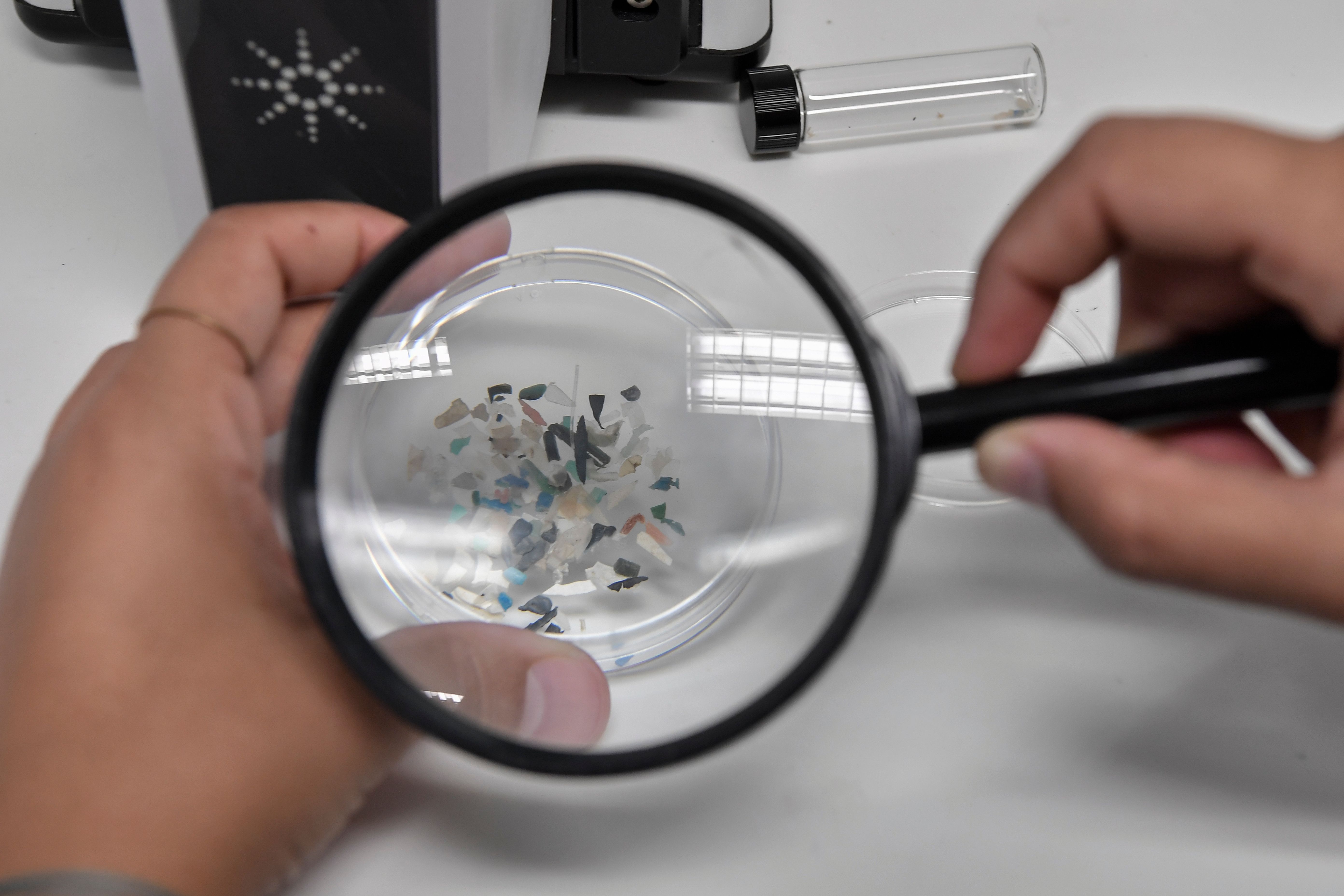Plastic pollution accumulating in human organs, study finds
Scientists say the tiny particles may increase the risk of infertility and cancer

A free daily email with the biggest news stories of the day – and the best features from TheWeek.com
You are now subscribed
Your newsletter sign-up was successful
Potentially deadly particles of plastic chemicals used in products including food packaging and mobile phones have been found for the first time in major human organs, a new study warns.
US researchers analysed 47 samples from a tissue bank originally established to study neurodegenerative conditions such as Alzheimer’s disease. All of the samples - which included tissue taken from kidneys, livers, lungs and spleens - contained traces of micro- and nano-plastics, which have been linked to an increased risk of cancer and other health conditions.
Microplastics “are typically less than 0.2in (5 mm) across, but so-called nanoplastic particles can be as small as a fiftieth of the width of a human hair”, according to Daily Mail.
The Week
Escape your echo chamber. Get the facts behind the news, plus analysis from multiple perspectives.

Sign up for The Week's Free Newsletters
From our morning news briefing to a weekly Good News Newsletter, get the best of The Week delivered directly to your inbox.
From our morning news briefing to a weekly Good News Newsletter, get the best of The Week delivered directly to your inbox.
Previous research has found that “microplastic particles had passed through the digestive systems of people across the globe”, says The Times. But the new study is the first to show that the plastics can also accumulate within human organs.
Presenting their results yesterday at the American Chemical Society Fall 2020 Virtual Meeting, the scientists revealed that the particles found included polycarbonate, polyethylene and polyethylene terephthalate.
Polycarbonate “is used to make laptop and mobile phone cases, CDs, DVDs and safety glass”, while polyethylene is in “everything from shopping bags and plastic wrap to drain pipes and bullet proof vests”, the Mail reports.
“Meanwhile, polyethylene terephthalate - commonly known as PET - is used to make clothing fibres, plastic bottles and food containers.”
A free daily email with the biggest news stories of the day – and the best features from TheWeek.com
The team also found that all of the organ samples contained bisphenol A (BPA), “a common plastic ingredient that has been linked to fertility problems”, adds the i news site.
“We never want to be alarmist but it is concerning that these non-biodegradable materials can enter and accumulate in human tissues, and we don’t know the possible health effects,” said researcher Varun Kelkar, of the University of Illinois.
Study co-author Charles Rolsky, of Arizona State University, added: “There’s evidence that plastic is making its way into our bodies but very few studies have looked for it. At this point, we don’t know whether this plastic is just a nuisance or whether it represents a human health hazard.
“You can find plastics contaminating the environment at virtually every location on the globe, and in a few short decades we’ve gone from seeing plastic as a wonderful benefit to considering it a threat.”
-
 Political cartoons for February 15
Political cartoons for February 15Cartoons Sunday's political cartoons include political ventriloquism, Europe in the middle, and more
-
 The broken water companies failing England and Wales
The broken water companies failing England and WalesExplainer With rising bills, deteriorating river health and a lack of investment, regulators face an uphill battle to stabilise the industry
-
 A thrilling foodie city in northern Japan
A thrilling foodie city in northern JapanThe Week Recommends The food scene here is ‘unspoilt’ and ‘fun’
-
 Epstein files topple law CEO, roil UK government
Epstein files topple law CEO, roil UK governmentSpeed Read Peter Mandelson, Britain’s former ambassador to the US, is caught up in the scandal
-
 Iran and US prepare to meet after skirmishes
Iran and US prepare to meet after skirmishesSpeed Read The incident comes amid heightened tensions in the Middle East
-
 Israel retrieves final hostage’s body from Gaza
Israel retrieves final hostage’s body from GazaSpeed Read The 24-year-old police officer was killed during the initial Hamas attack
-
 China’s Xi targets top general in growing purge
China’s Xi targets top general in growing purgeSpeed Read Zhang Youxia is being investigated over ‘grave violations’ of the law
-
 Panama and Canada are negotiating over a crucial copper mine
Panama and Canada are negotiating over a crucial copper mineIn the Spotlight Panama is set to make a final decision on the mine this summer
-
 Why Greenland’s natural resources are nearly impossible to mine
Why Greenland’s natural resources are nearly impossible to mineThe Explainer The country’s natural landscape makes the task extremely difficult
-
 Iran cuts internet as protests escalate
Iran cuts internet as protests escalateSpeed Reada Government buildings across the country have been set on fire
-
 US nabs ‘shadow’ tanker claimed by Russia
US nabs ‘shadow’ tanker claimed by RussiaSpeed Read The ship was one of two vessels seized by the US military